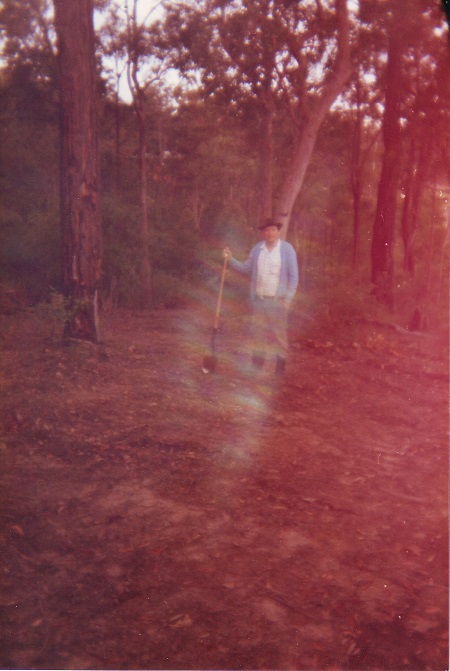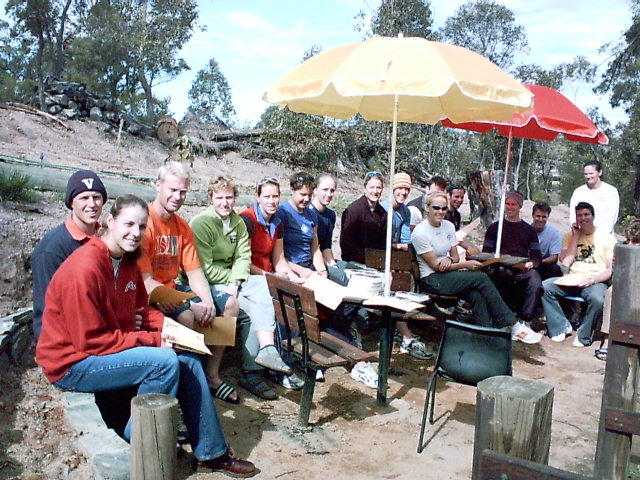
Timeout in Moruya – first sod – a spiritual encounter
Mid-year is a good reason to consider relocating to rural Australia. Many Australians each and every year after a holiday return to their city lives with the traffic chaos, people in your face 24/7, the pollution and the rest of it, and wonder why on earth they came back after their break.
Some years ago a study showed that one million city living Australians will make a move to live outside such huge metropolitan areas. Research by Online lifestyle adviser Sea Change Success shows more than 200,000 city dwellers will radically change their lifestyle with a sea-change, while more than 700,000 will move to a regional area.
Australian Workplace Innovation and Social Research Centre executive director John Spoehr said coastal and remote communities were a target of the NBN rollout, which would allow more people to work from home. "You may not have to change jobs," he said.
Now we learn, that with city house prices out of reach, many are buying their first home in the rural and country Australia.

AIS rowers visiting Basil Sellers House
Much to offer
The country – rural and regional Australia – has much to offer. My wife Delma and I lived in rural Australia, a small country town of Moruya for 14 years which were thoroughly enjoyed and appreciated. Moruya is a coastal town on the south coast of NSW.
Nowadays, a significant part of our Well-Being Australia ministry involves Country Town Tours (CTT) which takes athletes and coaches to rural areas to act as role models. They speak at schools, youth groups, prisons, service clubs, churches, sports dinners, business lunches other community centres, as appropriate to the individual towns.
I personally recommends the 'bush' lifestyle to any families considering migrating to Australia, as this lifestyle has many advantages over city living.
In rural Australia, there is a much greater emphasis on 'community' than in the anonymous city. In small towns, people know each other. Some say that they live too much in each other's back pockets, none-the-less the great advantage of this, is that rural people have a proclivity to care for their neighbours and when the need is there, a whole range of people come to help.
This illustrates how country folk look after each other. For example, if there is a new baby, there is never any shortage of meals being provided; should there be sickness, there will always be someone available to collect the kids and see them home safely.
In regional cities and country towns, people may have large assets but they often have little cash flow. There is not the 'readies' to finance school programs, sports equipment and facilities or community needs. Here, rural Australia comes into its own with ingenious ways to counter every issue, making sure that if someone is honoured is some way, there is money for the trip and accommodation.
Moruya Chamber of Commerce farewelling Mark Tronson with his painting 'Standing Tall'.
Rural social life
If you want an all-inclusive party or ball that everyone in the town attends, then rural Australia is the place to come!
From the annual Local Show Ball to the Debutante Ball for which the girls have saved for that special dress, and boys have actually attended dance classes to the excitement of the Year 10 and Year 12 formals each year, to New Year's Eve parties for the adults and the infamous 'Bachelor and Spinster' balls for the young singles, country towns know how to party!
No-one is excluded, following the traditions of older times when hard-working and isolated farm folk could forget their drab existence and come to town to kick up their heels for a night; sometimes travelling a hundred miles or so in their horse-and-cart.
Growing up in regional Australia, young people can gain a host of experiences that city young people simple do not encounter. Some of these include working on the family or friend's farm, or visits to a farm.
Country kids would never, ever think that milk came in cartons or peas came from the freezer! There is a freedom for young people to in rural areas and take on responsibilities far younger than their city cousins: firstly because security issues are not so foremost – since everyone in the town looks out for others, and knows their neighbours.
We lived in Moruya for 14 years a small country town on the NSW south coast as the Master (chaplain, lawn mower, cleaner, window washer) of the elite athlete respite facility Basil Sellers House (Timeout in Moruya) and now in Tweed Heads since December 2005, a big country town!
In both places all these rural advantages apply.
Basil Sellers visit to Basil Sellers House with the team Kim Gillis, Matt Boyes and Mark Tronson
Dr Mark Tronson is a Baptist minister (retired) who served as the Australian cricket team chaplain for 17 years (2000 ret) and established Life After Cricket in 2001. He was recognised by the Olympic Ministry Medal in 2009 presented by Carl Lewis Olympian of the Century. He mentors young writers and has written 24 books, and enjoys writing. He is married to Delma, with four adult children and grand-children. Dr Tronson writes a daily article for Christian Today Australia (since 2008) and in November 2016 established Christian Today New Zealand.
Mark Tronson's archive of articles can be viewed at
http://www.pressserviceinternational.org/mark-tronson.html

Dr Mark Tronson - a 4 min video
Chairman – Well-Being Australia
Baptist Minister 45 years
- 1984 - Australian cricket team chaplain 17 years (Ret)
- 2001 - Life After Cricket (18 years Ret)
- 2009 - Olympic Ministry Medal – presented by Carl Lewis
- 2019 - The Gutenberg - (ARPA Christian Media premier award)
Gutenberg video - 2min 14sec
Married to Delma for 45 years with 4 children and 6 grand children